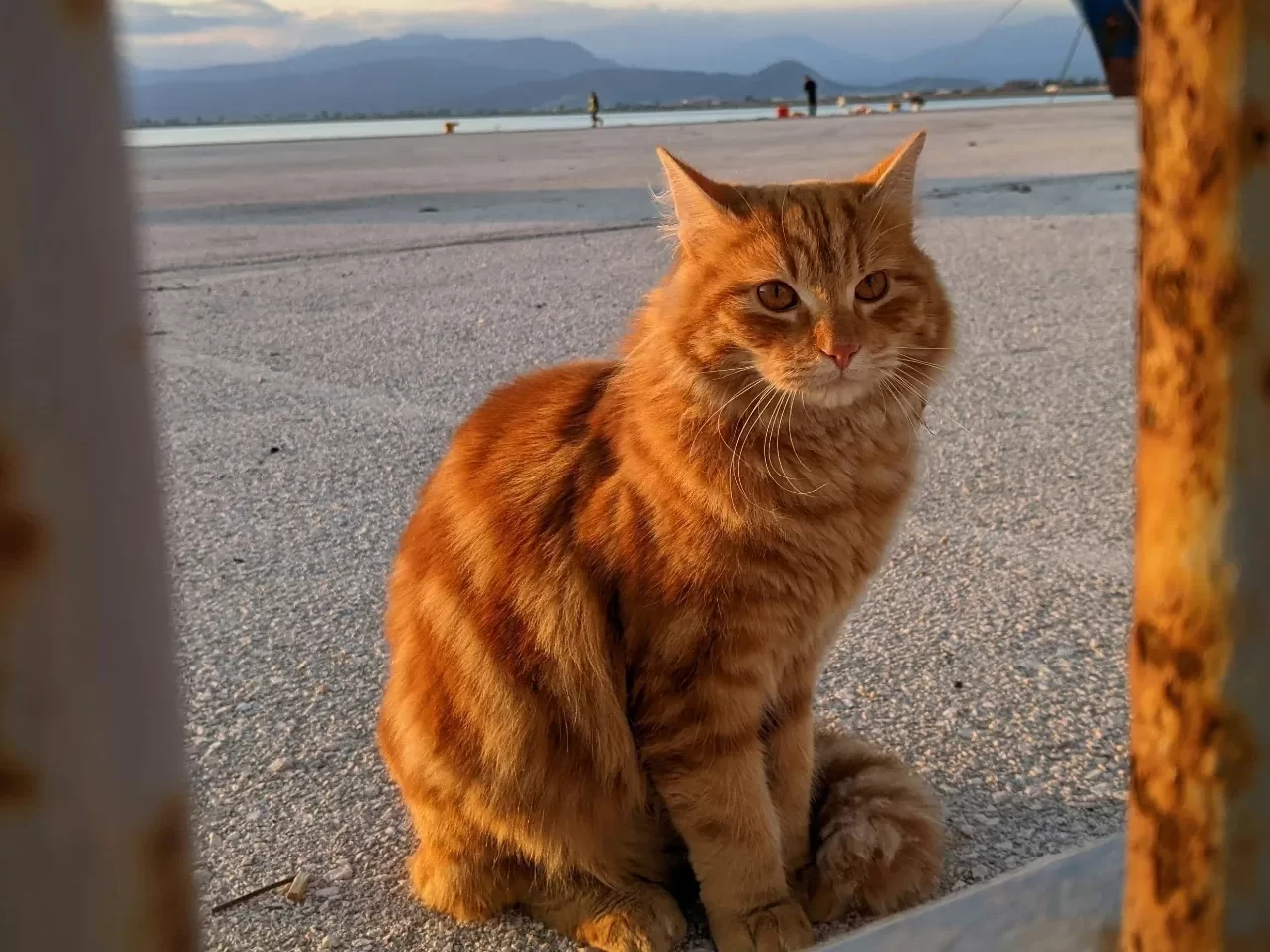Walking up and down the mountainous terrain of Athens, Greece, during my recent January Term study abroad trip (yep, that one) certainly tested the physical limitations of my mortal calves, but the most intense workouts I experienced during my time in the city would have to be from sprinting to catch up with my group after stopping to take pictures of the cats that freely wander the streets. I just couldn’t resist saying hello (or often “yassas,” as to ensure that the Greek cats could understand me) whenever I saw a friendly feline staring at me from behind a fence or lounging in the doorway of a store.
But, as my camera roll began to fill and I counted more pictures of cats than the Acropolis, between exhausted breaths, I had to ask myself: Why am I doing this? Sure, I like cats. I always have. But back home in Minnesota, I don’t normally feel the need to bust out my phone and take a million pictures every time I see a cat simply existing.
Even accounting for the fact that the background of Greece made these pictures considerably more beautiful than usual, given my quickly-solidified reputation as the cat girl on the trip, there seemed to be something about these cats that fascinated me for reasons beyond their adorableness.
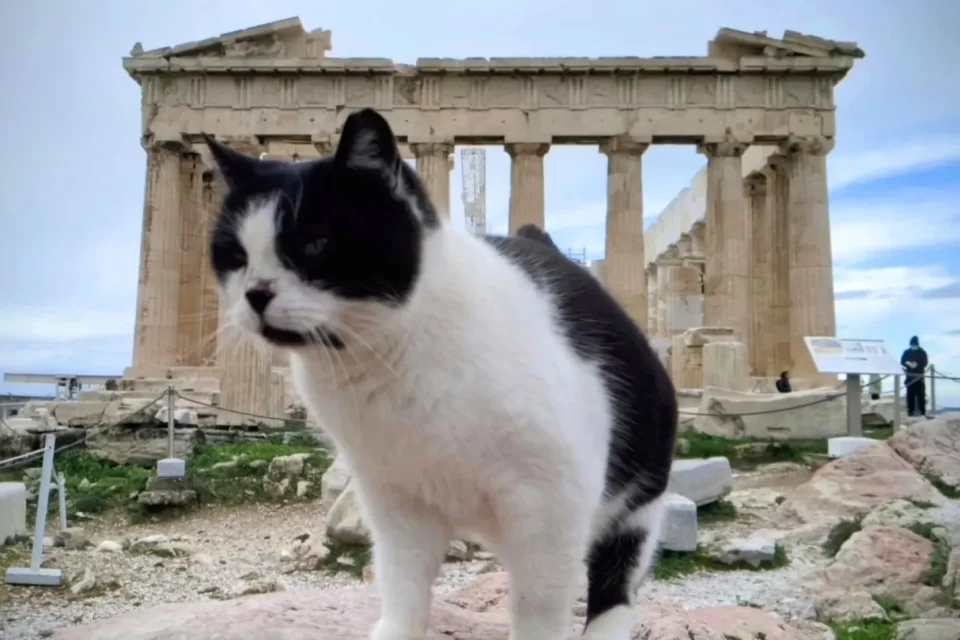
Then, as I got to know the culture of Greece and experienced the generosity and kindness of its people, I began to realize that the cats, that rely on the community for food, water and shelter, and seem generally well taken care of, reflected a larger culture of care for others.
So many aspects of everyday Greek life, like happy street cats, were exciting and exotic to me because they reminded me of the profound impact that building relationships and community in our lives can have, something that even the Minnesota-nicest of us could benefit from being more intentional about.
The first time that I saw the large-scale significance of relationships in Greek society was when we visited the Athens Central Market. The rush of morning customers had carried their bags of meat, fish and produce home by the time we arrived, so our group garnered special attention from vendors trying to sell as many of their goods as possible before the end of the day.
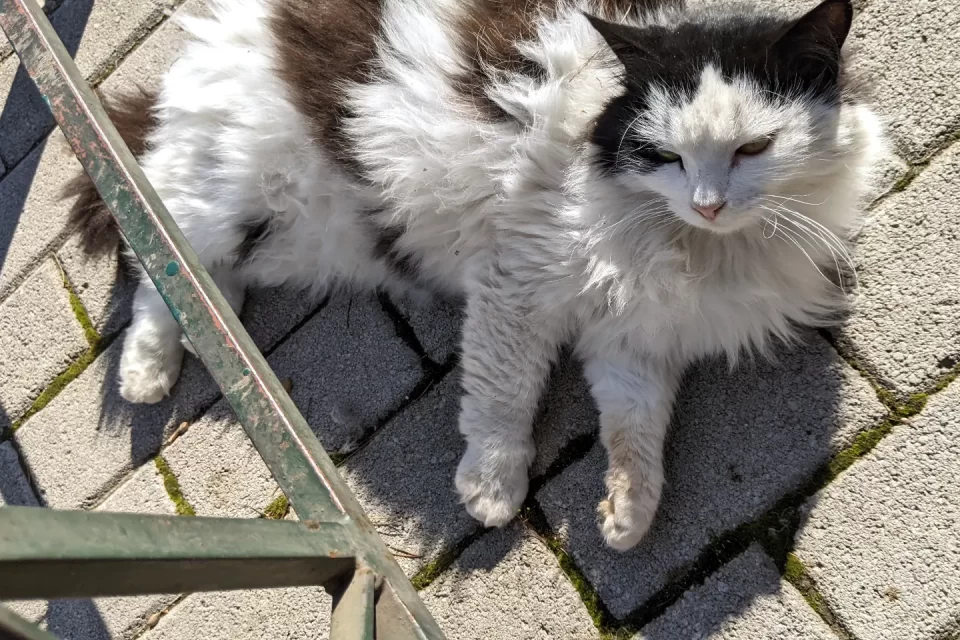
Walking through the building and being beckoned by so many people was overwhelming: If I lived there, how would I choose who to buy from? What are you supposed to do if someone sells you not-so-fresh food?
As we gathered outside the building, a herd of oblivious and intrigued Americans, our tour guide, Keti, answered my questions before I could ask them. She explained that many Athenians, herself included, develop relationships with specific vendors. After establishing that the food is good quality, the connection between the buyer and the seller grows, with the customer trusting that the food will continue to be good and the seller trusting that the customer will come back every week. By developing this relationship, community members get to know where their food is coming from, who they’re buying from and selling to and what their story is.
You want to buy your oranges from Dimitris because they’re always incredibly juicy and he has a daughter on the way; you want to buy your pistachio butter from Arianna because it’s heavenly on Elena’s bread and she’s always interested in how your new job is going.
Buying your groceries at the market is an infinitely more personal, human experience than using the self-checkout at Target—in Greece, the sustaining of relationships is what keeps people not only fed but feeling cared for in a way that a fast-paced, often faceless supermarket chain can’t offer.
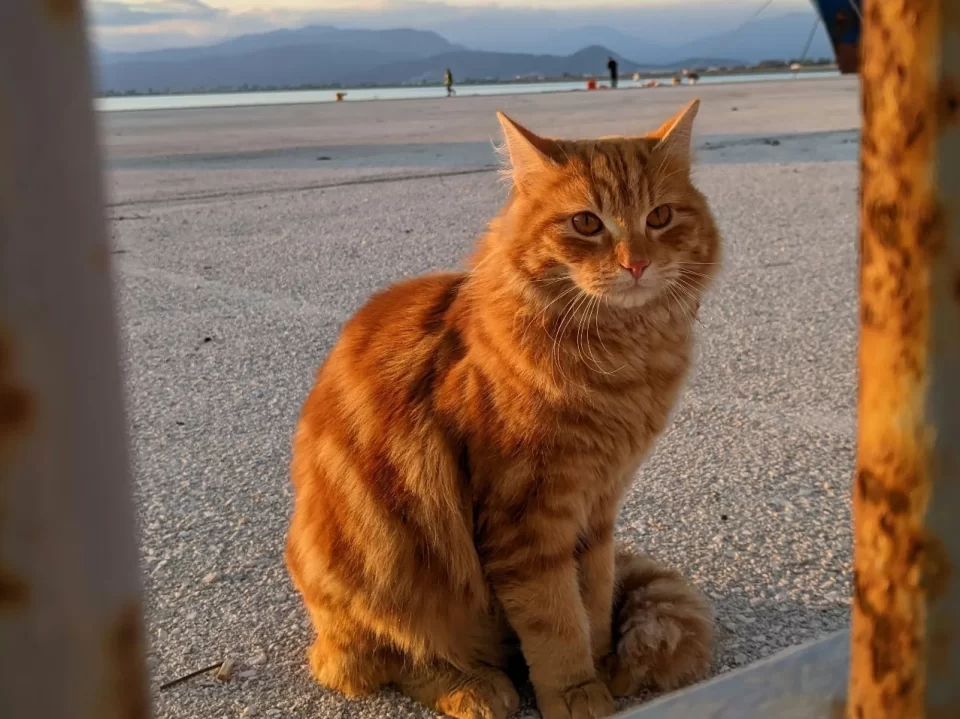
I could go on endlessly about all of the times that I experienced abundant kindness during my time as a temporary Athenian; there was the barista at the bakery by our hotel who giggled when I ordered the same (perfect) cheese pie every morning before asking what our class did the day before and occasionally throwing in a few honey-drizzled doughnuts on the house.
Then there was our bartender, Stam, who had memorized the names of the students on our study abroad program and told us about his family. According to him, his daughter really likes his impression of Gru from “Despicable Me” (he did it for us after a few drinks; I also liked it).
And, of course, there was the man running the ticket booth at the Temple of Aphaia who, with a knowing grin, told me to wait just a moment, handed me a jar of colorful kibble and allowed me to feed all of the cats that effortlessly slunk among the ruins. We watched them devour their food and enjoyed a long, quiet moment sharing in the simple and universal joy of cats doing literally anything. As we stood there, I felt so privileged to be reminded that, in the bustle of the lives expected of us at home, it is easy to forget that small moments of connection and contentment, too, can be more than enough.
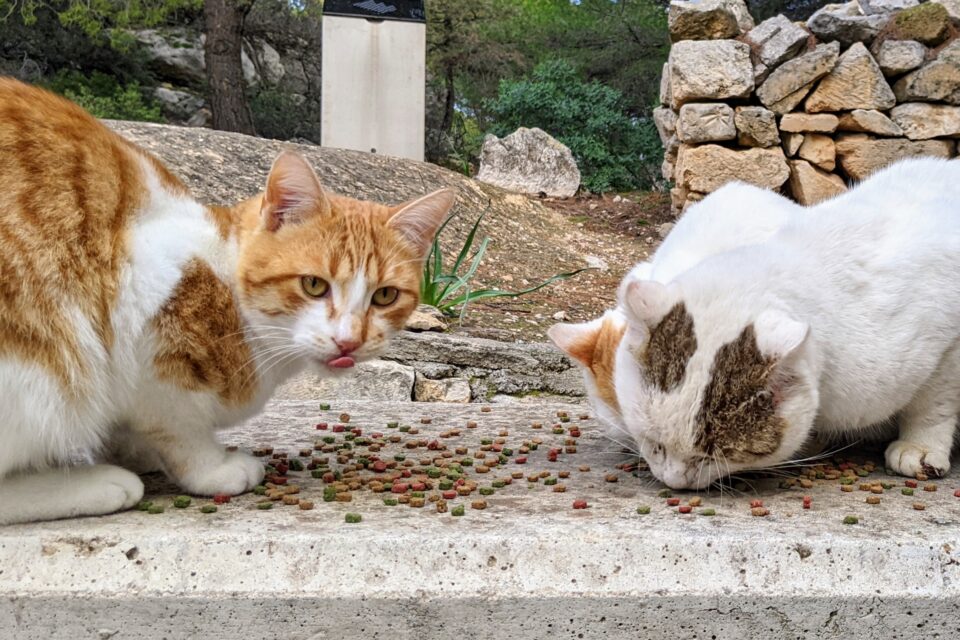
While I can’t argue that Greece has it all figured out when it comes to making sure that everyone is wholly cared for, my interactions with their cats and, ultimately, their people, demonstrated the power of making small, thoughtful changes that can make a monumental difference in the way we and the people around us experience life and navigate hardships as a community.
Kindness, generosity and simply caring about others’ stories don’t have to come at a significant price. We can introduce ourselves to the cashier that we see everyday and ask them how they’re doing, what they’re looking forward to. We can try to go to the farmers market every once in a while and meet the people growing our food. We can ask our bartender if they can do any good impressions.
We can give up the performance of pretending that we don’t care about the incredible reality that we are each human beings with lives and start to appreciate the lightness of becoming more than strangers.
We’re allowed to care about each other. And cats. Lots of cats.
Emily Rudie can be reached at rudi7985@stthomas.edu.

